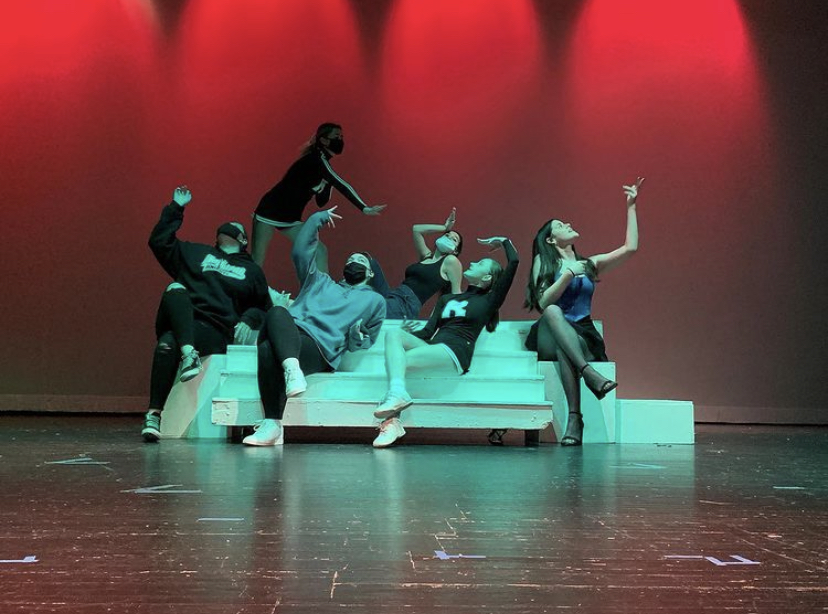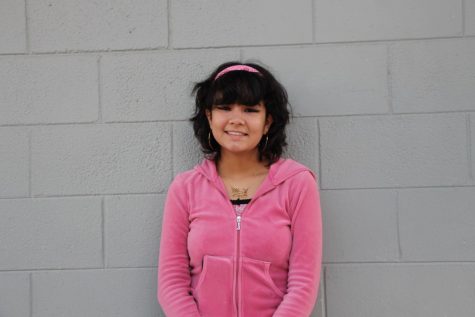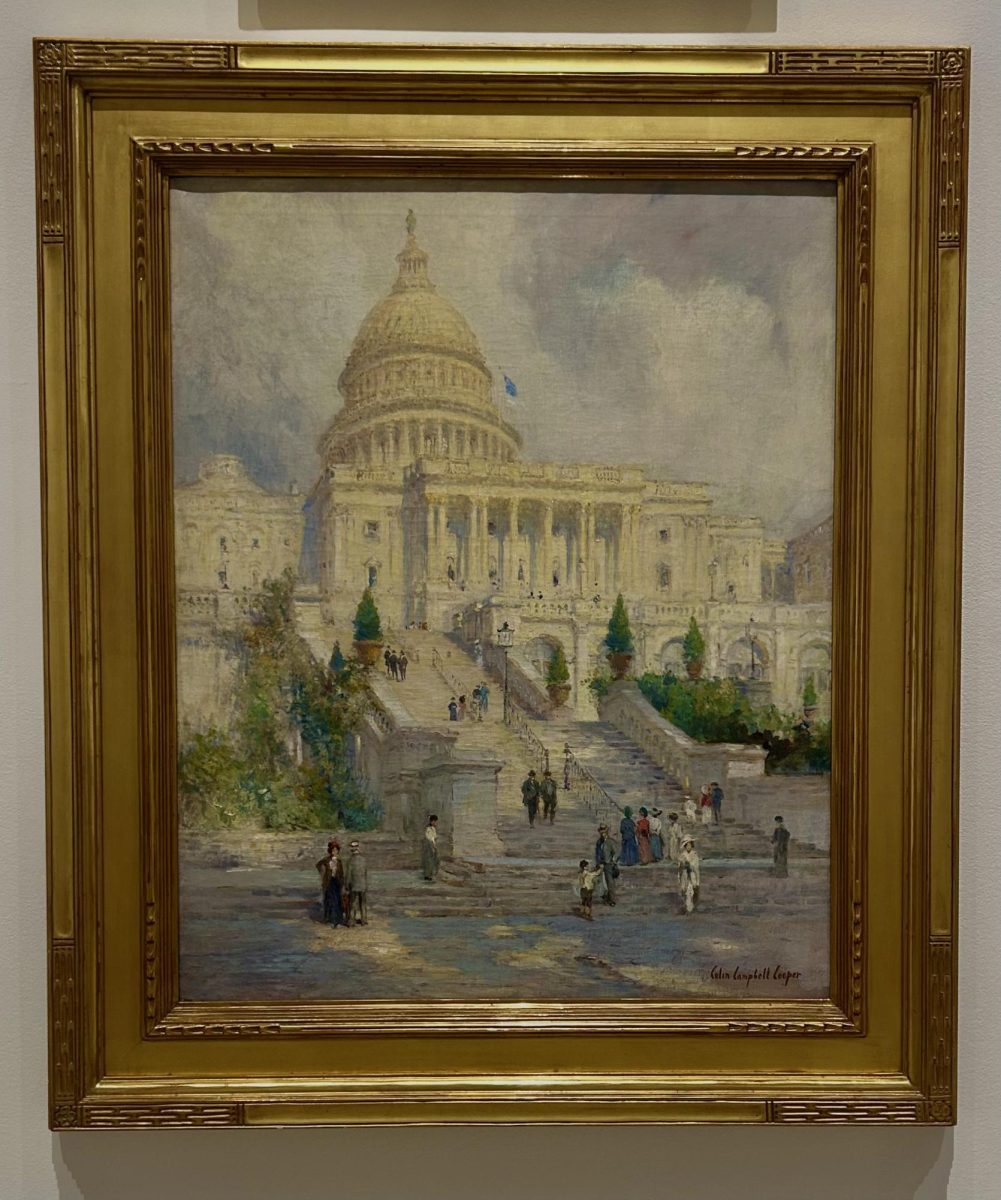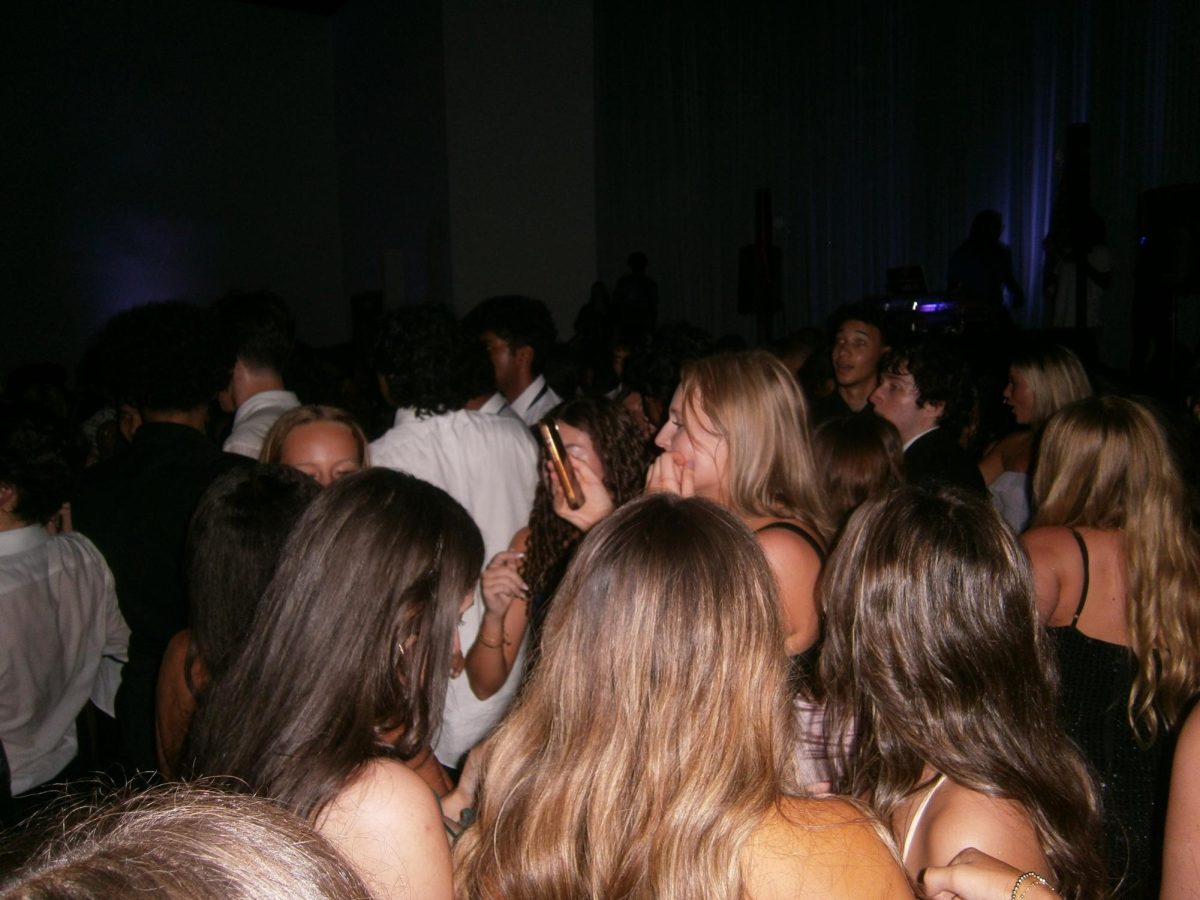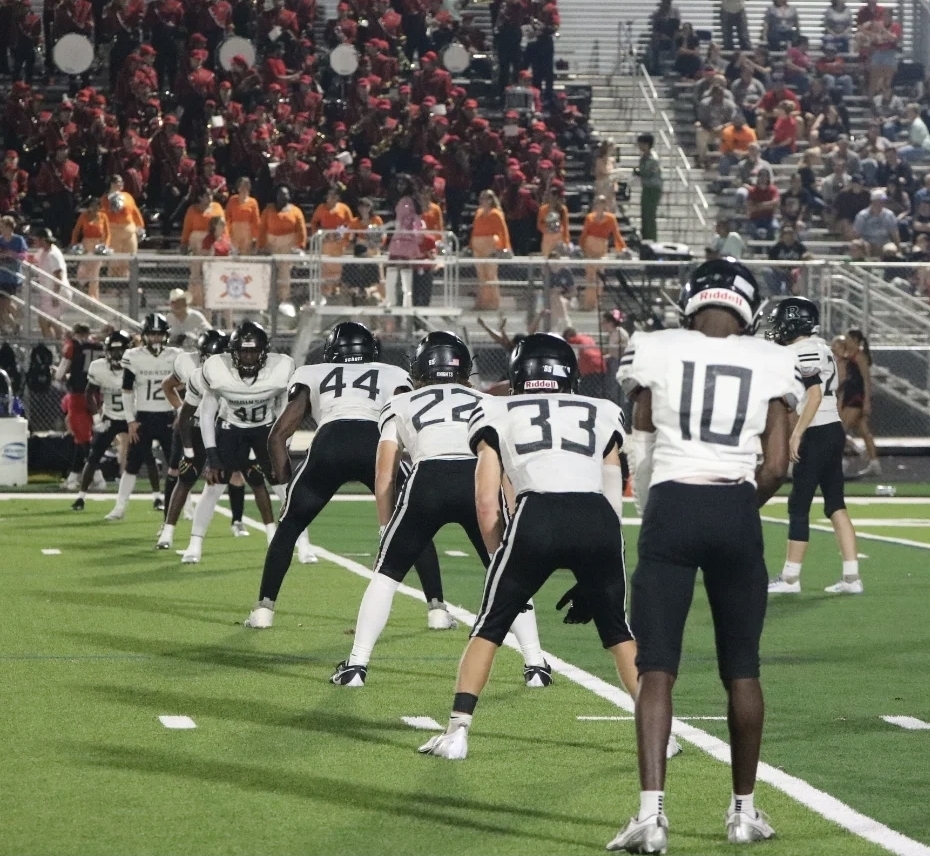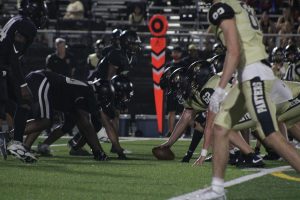Legally Blonde is back to bend and snap
Troupe 2660 has brought back their canceled spring musical better than ever.
Photo Included with permission from Troupe 2660
Complete with props, Troupe 2660 practices for their upcoming performances amidst COVID-19 restrictions.
February 19, 2021
Back in March, Broadway Knights were on the edge of completing their spring musical: Legally Blonde. The actors had their lines memorized like the back of their hand, the sets and costumes were ready to go and the show was about to begin–except COVID-19 hit.
All of a sudden, the musical was canceled. Seniors in theatre had missed out on one of their final musicals of the year. Legally Blonde looked like it was not going to see the light of the day anymore, that is until now.
Posters advertising auditions to the musical that disappeared in March sprouted across the walls in Robinson. Legally Blonde was making its way back to the stage in pink high heels and french tips.
“It was like meeting back up with an old friend that you haven’t talked to in so long. You know you have that connection with it, but it’s not entirely the same as it was before. But it still has that sentiment of what we enjoyed so much about it,” Elias Fermin (’21), Troupe 2660 Traditional Vice President, said.
The musical underwent many changes since the planned production from March 2020. While most of the cast stayed the same, major roles such as Warner and Paulette had to be recasted since seniors had graduated and several students had transitioned to eLearning. Originally, David Navas (’20) was Warner and Caila Rodriguez (’21) was Paulette.
“It’s definitely a step back almost, Legally Blonde would’ve been their last performance [the 2020 seniors] and it is really frustrating. I feel bad for them because they couldn’t have their final show,” Charles Davidson (’21), Troupe 2660 President, said.
Now, the musical features Payton Heckman (’23) as Warner and Dani Craft as Paulette (’22). Recasting wasn’t the only change either; COVID-19 precautions were implemented into the entire production.
Masks are required to be on at all times, mics cannot be shared and costumes cannot be shared. Makeup is only done from the nose and up, and all makeup products can’t be shared as well. Dressing rooms and bathrooms are frequently sanitized to keep rehearsal as safe as possible.
“Besides the cast, and even that has been changed, the plot of the show and the characters haven’t changed. Everything else has been flipped on its head,” Fermin said.
Out of all the changes the most notable is a live audience will not be there. Instead, a virtual show will be recorded and edited for everyone who wishes to see the show.
“It is so much more difficult now. We are having to do a virtual show now, we’re recording it all instead of singing it as group numbers. We’re recording two people at the most at a time and layering voices,” Elena Peden (’22), Troupe 2660 IB Vice President, said.
For those involved in theatre, a live audience is almost essential to the play. Fermin stated that playing along with the audience is what makes a theatre performance.
“As the audience reacts, that affects how the actors do their performances. You constantly have to make small adaptions to make sure the audience is enjoying it and perceiving the way their supposed to,” Fermin said. “So without that, a lot of the big numbers where we’re really trying to bring the audience into it and really make them feel what the characters are feeling, it’s harder to get that same emotion.”
Plot pieces within the story are also altered. A big moment in both the movie and the musical is when Elle Woods is sexually harassed by her own Professor. He tries to kiss her, but the cast cannot recreate the moment perfectly with masks on.
Group numbers can only be individually recorded to limit the spread. Unfortunately, many cast members rely on others to find the perfect pitch and aren’t comfortable with singing by themselves. Layering audios to recreate a group number is an issue as well, since the troupe doesn’t know how it will sound in the final production.
The adaption is not all bad though. There can be many benefits to a virtual, show such as making sure the performance is what the troupe wants. Unwanted scenes can be easily cut and redone if needed. Most of all, the cast is excited to finish what they’ve started.
“It’s been a long time coming. It’s time to finish it,” Peden said.

